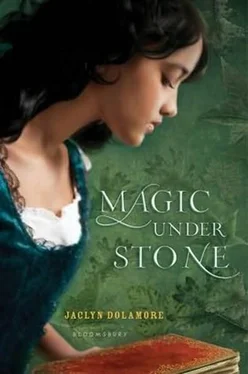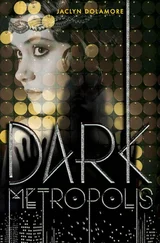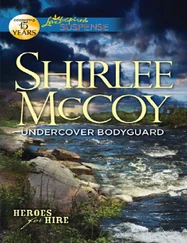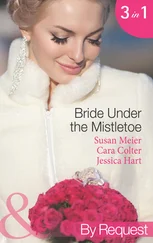Violet took one look at it and shoved the plate away from her so it crashed into the butter dish. “I won’t eat that. It looks disgusting! It looks like food people would eat if they were lost in the forest and starving to death!”
“It’s the kind of food we ate all day while we were out playing as children,” Erris said, sounding almost delighted at her protests. “Your mother and me and all the rest of us. We didn’t even have vinegar to make it exciting. And you will eat every bite of it before you have any sausage.”
“No!” she cried. “I thought you were going to be nice! Father would never make me eat something I hated. How could anyone think vinegar was exciting? Celestina, this is unfair.”
“Don’t you want to get well?” Celestina said in a rather automatic tone.
“These plants are fresh from the forest,” Erris said. “They are full of good things for animals and people.”
“You’re talking like I’m a child!”
“Well, I promise to stop if you give that poor salad a chance,” Erris said. “I don’t need to be a doctor to know that the human world is making you sick.”
“It’s not! And I’m half-human!” Violet obviously realized she wasn’t going to win. She stood up, shoved her chair over so that it hit the floor with a bang, and stormed off, with one last shout at Lean Joe, who started laughing heartily.
Once she had left, we could hear her coughing all the way down the hall.
“I hope she doesn’t hurt herself, with all this commotion,” Celestina said, poking a sausage with her fork.
“She won’t,” Erris said. “Anyway, once she’s calmed down, I’ll bring her an apple.” He looked at the salad hungrily. “If any of the rest of you would like some… I don’t think it will keep long.”
“It might keep through tomorrow,” Celestina said. But she took a little, obviously out of guilt. Erris couldn’t eat, and it was strange to eat piles of sausage and potatoes smothered with gravy while he had no plate or even a cup. The desire for food was constant in his eyes whenever I ate anything, even the stale roll I packed for the train.
“Why aren’t you eating it?” Lean Joe asked.
“I’m not sure you’ll want to know,” Erris said. “I must apologize in advance for being so unnerving.”
Lean Joe scoffed. “Unnerving? Why, I’ve been to prison. Not much you can say to unnerve me anymore, especially something that starts with eating rabbit food. There’s men in there that would eat a lot worse.”
“Like what?” Erris asked, but I kicked his leg.
Celestina started laughing. “Joe, at least give them a day before you tell those stories!”
“You can laugh, but there was a cannibal in that prison!”
“He never saw cannibals,” Celestina said. “He was in prison for conning people out of their money selling fake medicine. They don’t put murderers in the same place. And he’s reformed now, aren’t you?”
Joe nodded solemnly. “That’s right, I’ve had my fun. I’m no fool. Best to shape up before you’re dead.”
“This house isn’t much like Hollin’s, that’s for sure,” I told Erris after dinner as we strolled the house. Celestina had encouraged us to explore while she attempted to coax Violet into eating the salad. I had shown Erris our guest rooms, and we roamed from there. I was happy to have him to myself again.
“I never did see Hollin’s house, but I can imagine his gardener wasn’t a con man.”
“No. It was much more proper. Although, I think I like this place better.”
Once, I might have called Ordorio’s house gloomy. We poked our noses into portrait galleries lined with people frowning out from cracked paint and heavy wooden frames. And perhaps the tapestries had once been vibrant and beautiful, but now they were faded, slowly disintegrating on the walls. I suspected most of the furniture had been built by people wearing starched ruffs, who did not want their descendants to be any more comfortable than they were.
Nevertheless, there was a difference between a house full of mold and uncomfortable furniture and a beautiful house where sad secrets permeated the very walls. The absence of taxidermy was a comfort, and I saw very little evidence of sorcery. Ordorio probably had a library somewhere where he kept his books and artifacts, but it wasn’t spilling all over the house like a warning that someone dangerous dwelt here.
“More paintings!” Erris said with dismay, pushing open the next door. “Were his parents art collectors?”
“With rather poor taste,” I said. The men had beady black eyes and fiercely pointed beards, and the women fared no better; unnaturally rosy cheeks and huge bosoms seemed the fashion.
“They must have brought them over from the Old World,” Erris said. “These are no doubt heirlooms, but nevertheless I feel sorry for him if these are his ancestors. And I’m not looking for paintings.”
I would have been happy to stroll the moldy old portrait gallery with Erris, making jokes about the antique faces, laughing in the intimacy of shadows. “What are you looking for, then?”
“A piano, of course.”
“Did you ask Celestina if there is one?”
“No, I like the hunt. I wonder what’s up these stairs?”
I hoisted the lantern. “Let’s see.”
Erris followed, briefly grabbing my elbow with a steady hand when I stumbled on a crooked step. “I feel like a bandit, snooping around without anyone who lives here,” he said.
“I’m glad we can snoop. Clearly, there’s nothing to hide around here.” In Hollin’s house, I had found Annalie’s hidden quarters on the third floor.
But most of the doors on the third floor here were locked. I rattled them all stubbornly, trying to force them open, until Erris pulled me away. “These are probably Ordorio’s quarters. I’ll bet he locks them to keep Violet from poking around with magic. I wouldn’t worry about it. Although, if his wife is secretly alive up here… well, I could only wish.” He motioned me back toward the staircase.
Not long after, we found the piano. It was not far from the dining room; we had just ventured in the wrong direction. Music has an uncanny ability to chase away misery, at least for a time.
“It’s in tune too,” Erris said. “Whoever Ordorio is, I could kiss him.”
“That wouldn’t be fair. You haven’t even kissed me yet.”
He smiled slightly, which wasn’t really the response I yearned for, and left me feeling silly for attempting flirtation.
He played a few notes. “How about it, Nim? ‘In Springtime Blooms the Rose’?”
I laughed. “Anything but that!” That had been one of the only songs he could play when he was stiff clockwork trapped at a piano, and it was hardly cheerful under any circumstance, about a man who goes to war, leaves his love behind, and never returns.
“I should learn to play the songs that you know from your home,” Erris said.
“It seems we have all winter. I can teach some of them to you.”
He played a soft little tune, his long fingers light across the keys. I sat on the edge of the piano bench, like I used to when he was trapped. I loved to watch his hands move freely.
We had fallen in love without being able to say much to each other. I think it was still hard for him to say the things in his heart. Jokes came easier. But he could speak through the piano, even now. His song remained slow, and it grew more melancholy. It could be that I ascribed things to the music that he didn’t mean, but I didn’t think so. I heard his regret that things had gone this way for him and for us. I heard him miss his family. I heard his desperation and his fear.
If he would share all of this with me, it couldn’t be hopeless for us. Not quite.
Читать дальше












